Archival documents in France show that Nguyen Ai Quoc, later known as President Ho Chi Minh , actively participated in revolutionary activities and wrote for newspapers in France during his stay there from 1917 to 1923.
During the process of working, learning and awakening to the revolution, Nguyen Tat Thanh began to pay attention to and learn about journalism - a popular and multi-functional means of information at that time. From then on, he took the opportunity to both learn French and learn journalism.
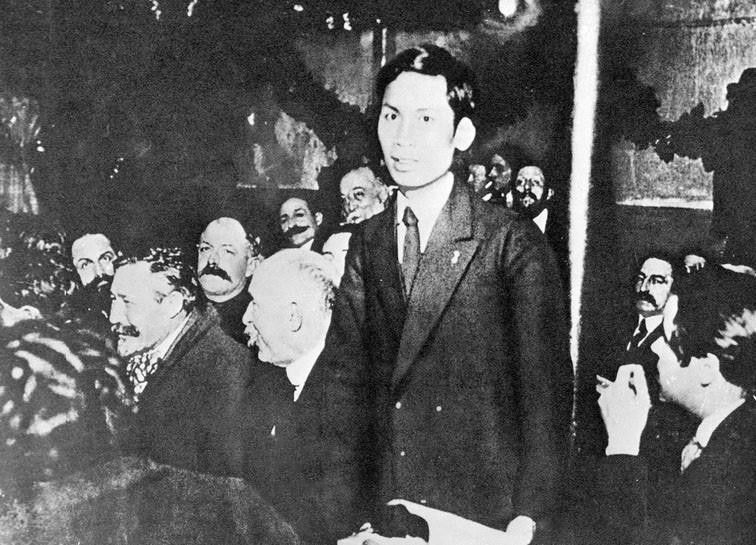
Comrade Nguyen Ai Quoc attended and spoke at the 18th National Congress of the French Socialist Party in Tours city, December 26, 1920. (Photo: VNA archive)
Journalism for the revolutionary path
Nguyen Ai Quoc was his new name from June 1919 when he, on behalf of Vietnamese patriots in France, sent the Petition of the Annamese People, consisting of 8 points demanding that the French Government recognize the democratic freedoms and equal rights of the Vietnamese people, to the Versailles Conference.
During his time in France, Nguyen Ai Quoc wrote for many newspapers, especially those associated with the workers' and communists' movements and against social injustice such as: The People (Le Populaire), La Vie d'Ouvriers (Workers' Life), Le Libertaire (The Free People), L'Humanité (Humanity) ...
In 1922, Nguyen Ai Quoc and his comrades in the Colonial Union published the newspaper "The Miserable" to propagate the idea of liberating colonial countries. This newspaper became a forum for Nguyen Ai Quoc and the Colonial Union to propagate the idea of liberating colonial countries. During its 4 years of existence, Le Paria published 38 issues, making an extremely important contribution to the dissemination of Marxism-Leninism in Indochina and other colonial countries, promoting the movement to fight against the French and liberate the nation into a new, more exciting phase.
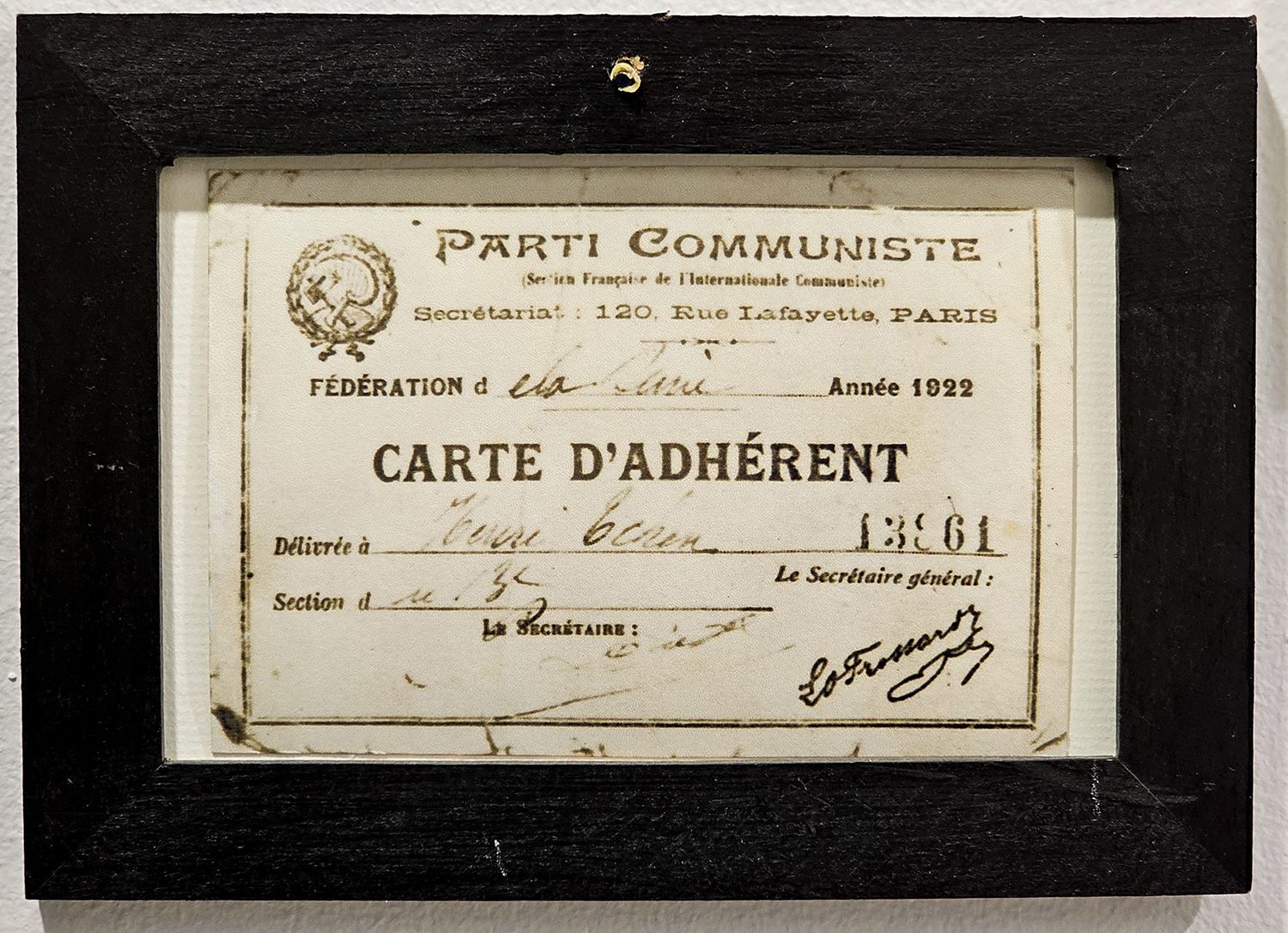
Membership card of the French Communist Party of comrade Nguyen Ai Quoc with the name Henri Tchen, 1922.
In the book "Ho Chi Minh: Writings and Struggles", published in 2019, French historian Alain Ruscio - who spent many years researching historical documents about colonial countries and President Ho Chi Minh - said that he found an effective way to fight against the French colonial regime, which was journalism. The reason was that at that time, the colonial people had to endure a regime of strict control over any writing that questioned or affected the ruling system.
In France, the tone of the press was an exciting discovery for the young man seeking a way to save his country. There, one could say, and especially write, almost anything one wanted. It was with his pen that he waged his struggles during his stay in France. And when he became a communist, Nguyen Ai Quoc still used all possible press support to learn about the fate and hope of his country, as well as the fate of the poor and exploited in other countries. Nguyen Ai Quoc's press works in France expressed a spirit of criticism of French imperialism and colonialism and demanded freedom and equality for workers.
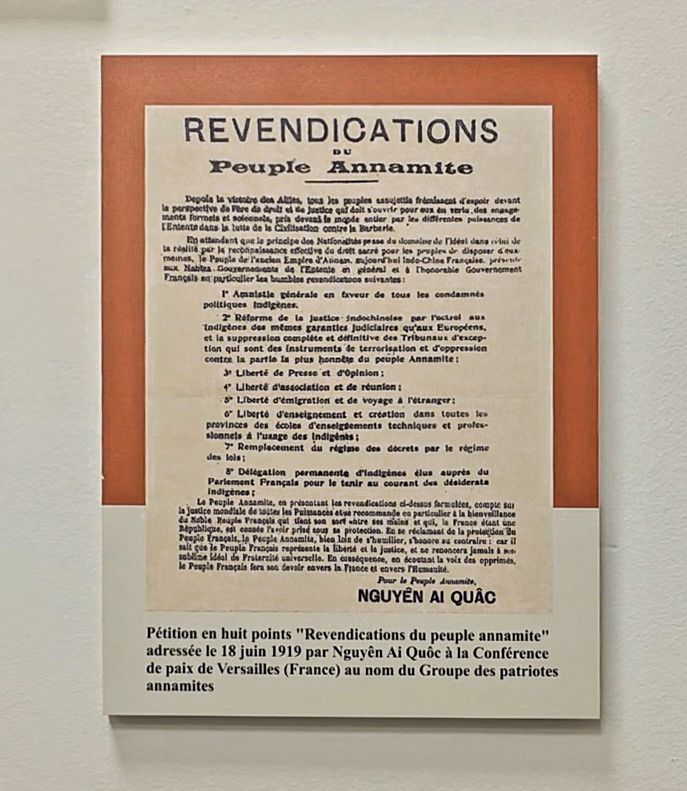
The petition of the Annamese people is displayed at the Ho Chi Minh Space in the Living History Museum in the city of Montreuil.
Nguyen Ai Quoc's journalistic works in France expressed a spirit of criticism of French imperialism and colonialism and demanded freedom and equality for workers.
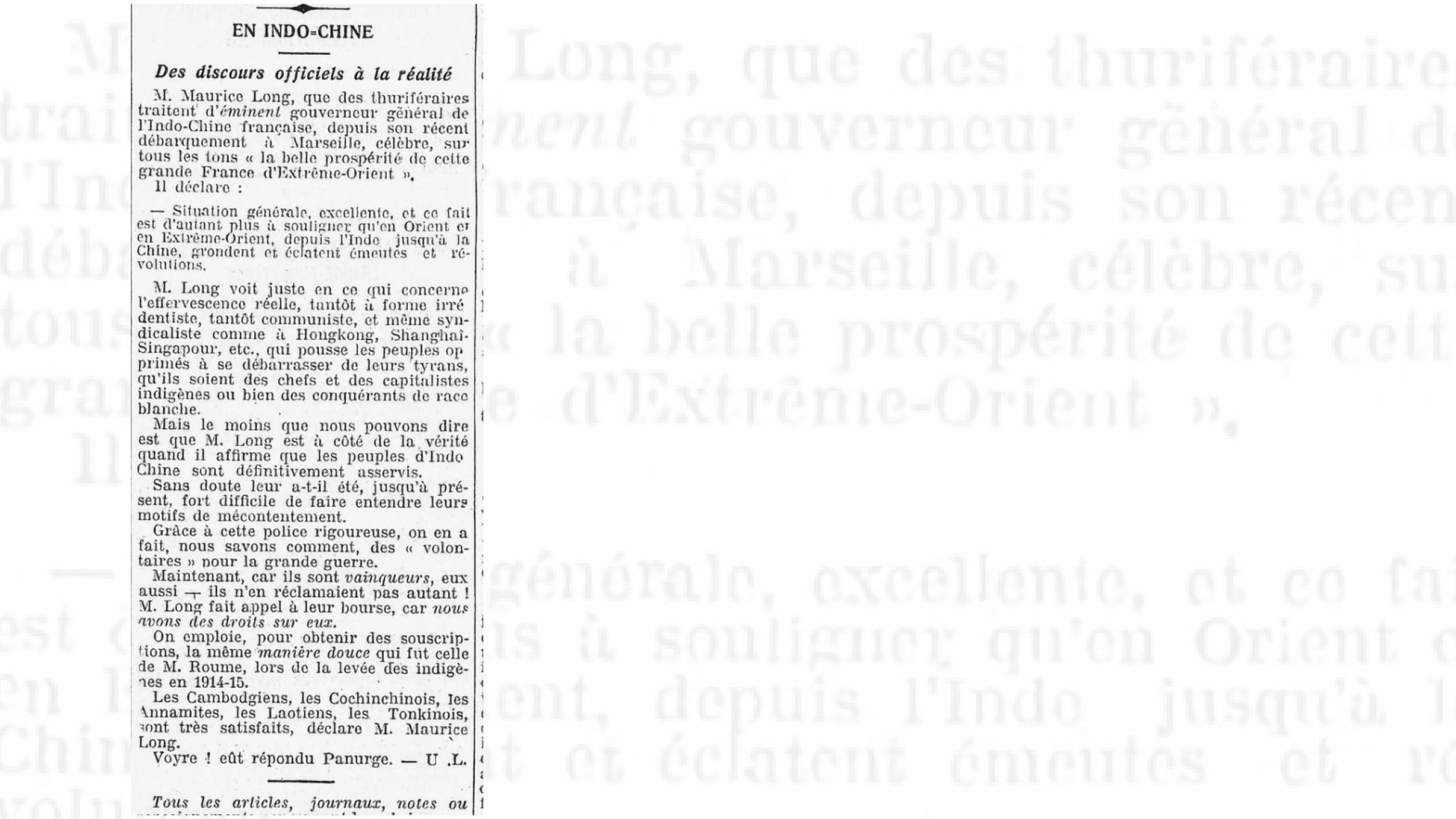
In the archives of the newspaper Nhan Dao (founded in 1904, representing socialist ideology and by 1920 becoming the central mouthpiece of the French Communist Party), there is an article "In Indochina, the indigenous peoples' problem" that occupies an important position in the issue dated August 2, 1919. In it, Nguyen Ai Quoc outlined what would later become the core content of the "Verdict on the French colonial regime" in 1925.
At the beginning of the article, Nguyen Ai Quoc wrote: On June 18, the newspaper Nhan Dao published a petition from the Annamese people to the Peace Conference demanding amnesty for all native political prisoners, demanding legal reform in Indochina by issuing guarantees for the natives similar to those for the Europeans, demanding freedom of the press, freedom of assembly and association, freedom of education, demanding the replacement of the decree system with the legal system; and finally, demanding a permanent delegation of native people, elected to the French Parliament.
Nguyen Ai Quoc emphasized: We can only consider those very correct demands as our own, in an era when the people's will is to have the right to self-determination. France had begun to occupy Indochina almost at the same time that Japan took the first steps in its famous reforms of 1868. But in about half a century, Japan had known how to create a regime that put it among the world's leading powers; France, it must be said, was still groping in its Indochina policy.
He condemned the reign of tyranny that deprived the colonial people of their basic human rights, the domination by force to brazenly exploit the ignorance and poverty of the colonial people, and the abyss of administrative and legal separation between Europeans and natives.
Although the article caused a stir in the colonial world, he still affirmed the moderation in both content and form of the petition: Our aspirations are aimed at reforms essential to our liberation, and at those liberties without which man today is but a miserable slave. No one can deny that without these liberties, essential for the dissemination of ideas and knowledge which modern life requires, no serious educational work can be expected to be carried out.
In the article "Some meanings of the colonial issue" published in the newspaper Nhan Dao on May 25, 1922, Nguyen Ai Quoc expressed his views on the struggle against colonialism with the French Communist Party, arguing that this new party "cannot be satisfied with manifestos that are purely emotional and have no results like the First and Second Internationals, but must have a precise plan of action, an effective and practical policy".
As a member, he not only mentioned the difficulties of the French Communist Party in carrying out its tasks in the colonial field, but also pointed out the indifference of the proletariat of the mother country to the colonies. He suggested: "The workers in the mother country need to know clearly what the colonies are, must know what happened in the colonies, know clearly the suffering - a thousand times more suffering than the workers in the mother country - that their brothers, the colonial proletarians, have to endure. In short, the workers in the mother country must pay attention to the colonial problem... Faced with these difficulties, what must the Party do? Strengthen the Party's propaganda work to overcome them."
Based on Nguyen Ai Quoc's opinions in the article of May 22, 1922, Nhan Dao newspaper decided to open a regular information column about the colonies. Nguyen Ai Quoc was the most enthusiastic person in this column, with many news and articles from 1922 to 1924.
Focusing on two themes related to the interests of the French people in the colonies and internationalism, Nguyen Ai Quoc tried to convince his comrades in the French Communist Party and the French proletariat that they had to fight, together with the colonial people, against a single enemy: brutal imperialism. At that time, the colonial issue was not of much concern to the young French Communist Party.
According to historian Alain Ruscio, articles with such sharp and clear arguments about the miserable situation in his homeland Vietnam, show that journalist Nguyen Ai Quoc had a solid political maturity on the path of revolutionary activities in France. The articles in France clearly reflect his thoughts and activities on the path to national salvation, as well as specific activities for the Vietnamese revolution and the world revolutionary movement.
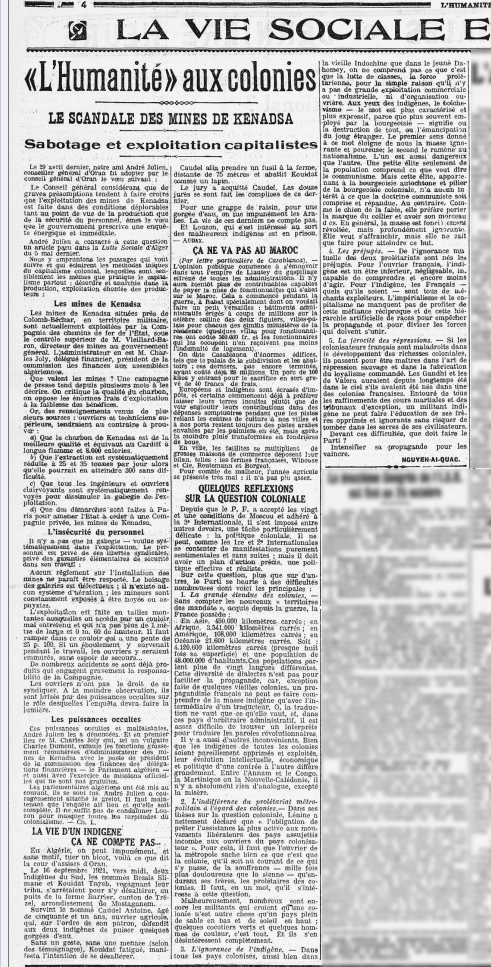
The article "Some implications of the colonial question" was published in the newspaper Nhan Dao on May 25, 1922.
President Ho Chi Minh's journalistic legacy
Head of the International Department of the Humanitarian newspaper Vadim Kamenka shared: Ho Chi Minh was a great journalist, a shining example of the spirit of fighting through his pen for genuine goals. That is for justice, freedom, equality, peace for the Fatherland and the noble spirit of internationalism. In France and with the Humanitarian newspaper, from 1920 to 1923, Ho Chi Minh was not only a communist and anti-colonial activist, but also an extremely active journalist calling for solidarity between peace-loving people in France and people in countries exploited and oppressed by colonialism.
The tradition of Humanitarian journalists mentioned the special marks of Ho Chi Minh during his revolutionary activities, working as a journalist in France under several pen names, the most prominent of which was Nguyen Ai Quoc. Analysis from historical documents shows that journalistic activities were one of the important factors in this period, which had a decisive meaning in the development of his ideology and political fighting spirit. He was a multi-talented journalist, writing articles in many different forms: editorials, comments, news, translations, short stories, memoirs and even satirical drawings such as in Le Paria newspaper, issue 5 published on August 1, 1922, depicting the exploitation of the Vietnamese working class by French colonialists.
Journalist Vadim Kamenka emphasized: It can be said that the Nhân Đạo newspaper and Nguyen Ai Quoc "had a destiny to meet". The newspaper was where he first encountered the draft of Lenin's theses on the national and colonial issues, found the way to save the Vietnamese people and marked important journalistic activities on the path of revolutionary activities.
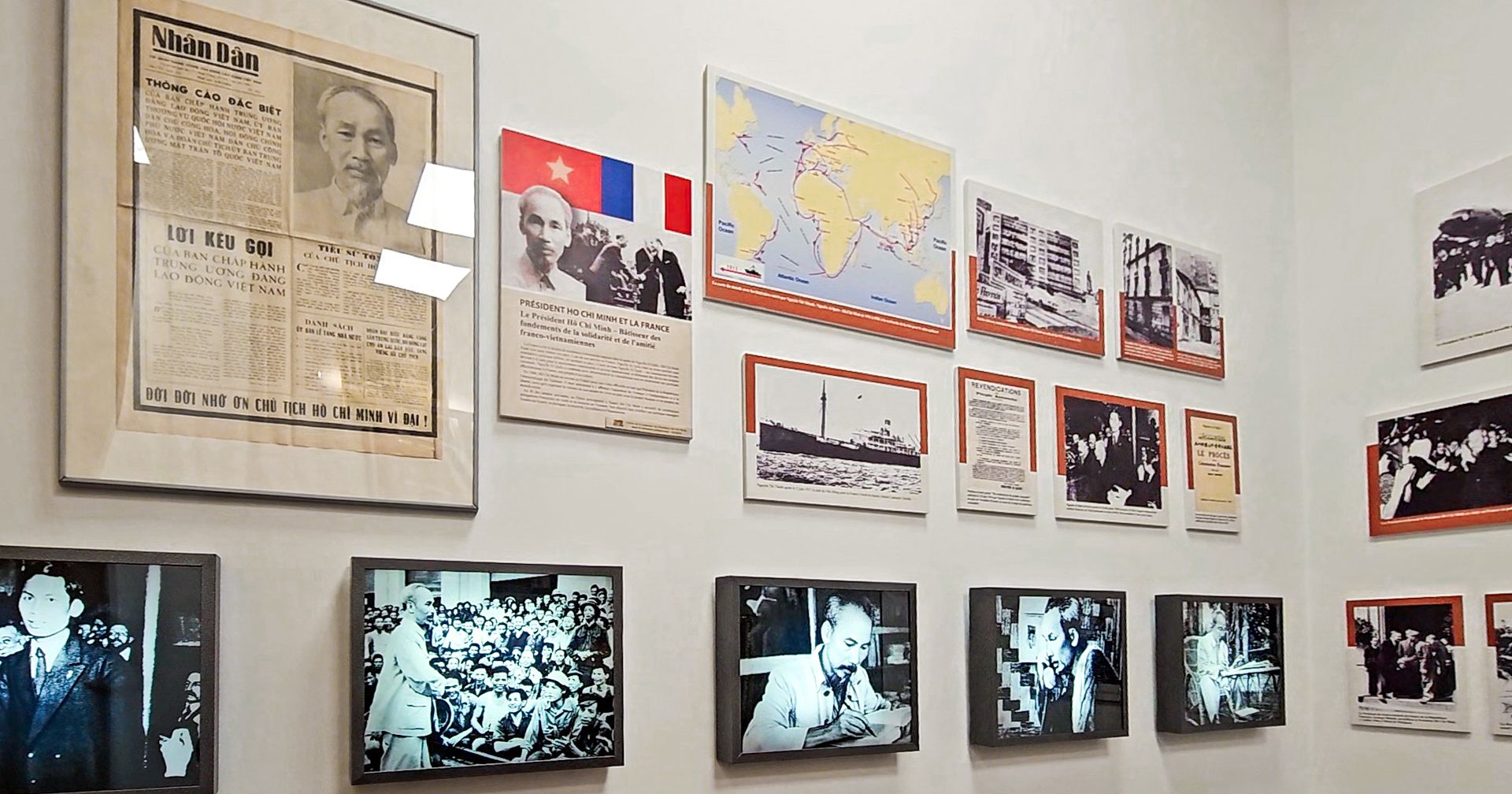
Images and documents about President Ho Chi Minh are displayed at the Ho Chi Minh Space in the Living History Museum in the city of Montreuil.
Nguyen Ai Quoc founded the newspaper "The Miserable" in 1922 as a forum for colonial peoples to condemn the domination and exploitation of the colonial government, calling for solidarity among the people of colonial countries, thereby aiming at the highest goal of human liberation. He also wrote for a number of newspapers, but he devoted much of his heart to the newspaper L'Humanité (Humanity), with many articles of great value on ideology, politics, ethics, culture, diplomacy...
With many pen names, including hundreds of news and articles for Nhan Dao newspaper, it can be seen that Nguyen Ai Quoc was an organizer and manager, always contributing to journalism with his intelligence, creativity, fierce fighting spirit and cleverness... Through the press, he had a vision of the times when he pointed out the causes leading to the miserable life of people in the colonies, while persistently persuading friends and comrades from France, the Soviet Union and China to acknowledge and support his revolutionary struggle. Therefore, journalist Nguyen Ai Quoc, with his sharp writing style and arguments, attracted special attention from readers in France, thereby receiving sympathy and support for his struggle. Over time, Nhan Dao newspaper was the leading flag on the press front in France, disseminating information and having many articles supporting the struggle of President Ho Chi Minh and the Vietnamese people to regain independence, freedom and national unity.
Through his journalistic activities in France, Nguyen Ai Quoc - Ho Chi Minh was truly successful in using "the press as a sharp weapon" in his revolutionary journey. Historian Alain Ruscio and journalist Vadim Kamenka emphasized: President Ho Chi Minh used the press as a revolutionary weapon, spreading noble humanistic ideas for peace, independence, freedom, equality, solidarity and social progress. Ho Chi Minh's thinking and journalistic style are a precious treasure left for generations of journalists today and tomorrow.
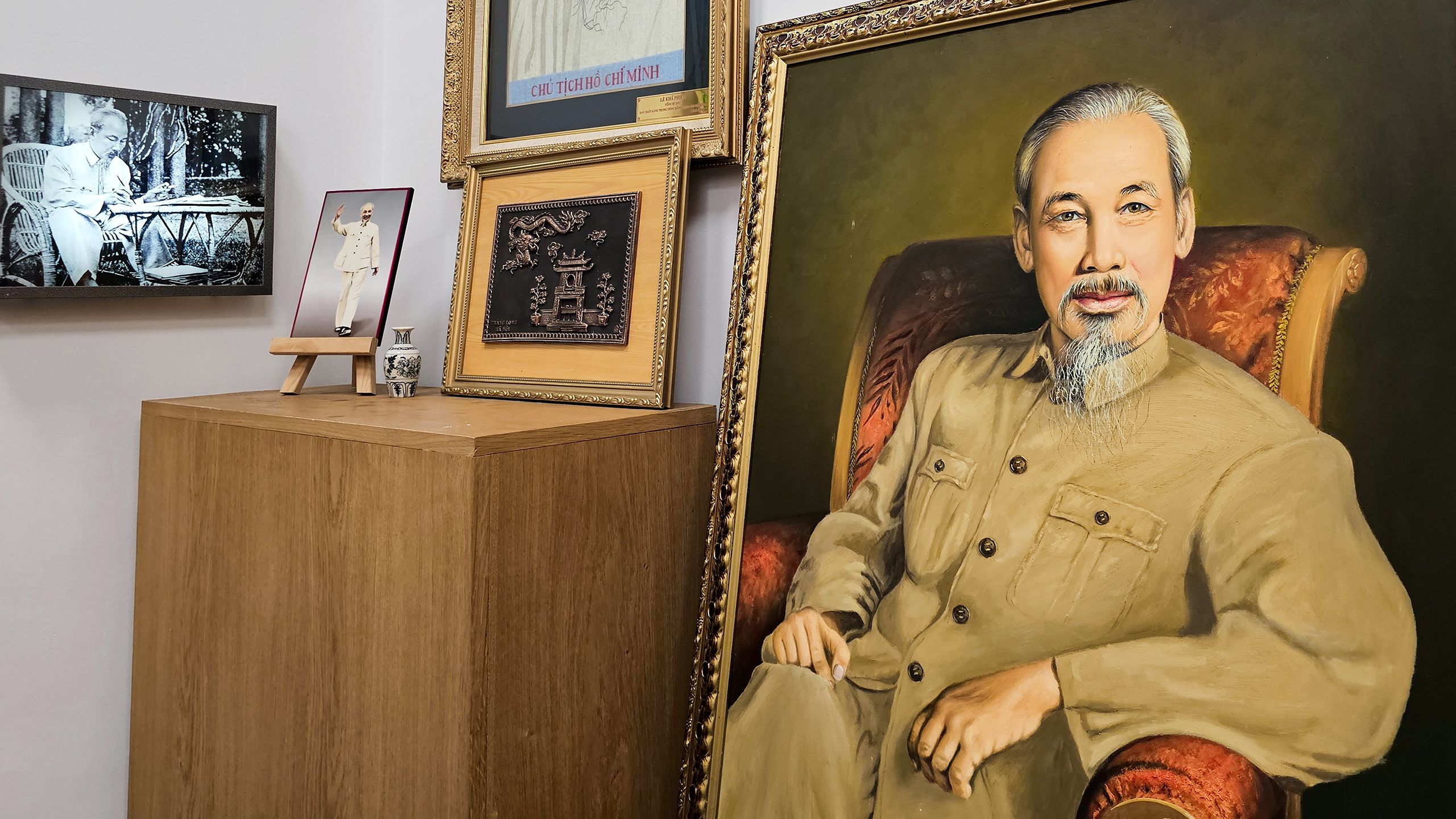
An image of President Ho Chi Minh is displayed at the Ho Chi Minh Space in the Living History Museum in the city of Montreuil.
President Ho Chi Minh was a great revolutionary leader of Vietnam. Before becoming a leader, he was a journalist and used the press as a tool to propagate and fight for the independence and freedom of the Vietnamese people.
Source: https://nhandan.vn/special/dau-an-nha-bao-cach-mang-nguyen-ai-quoc-tai-phap/index.html






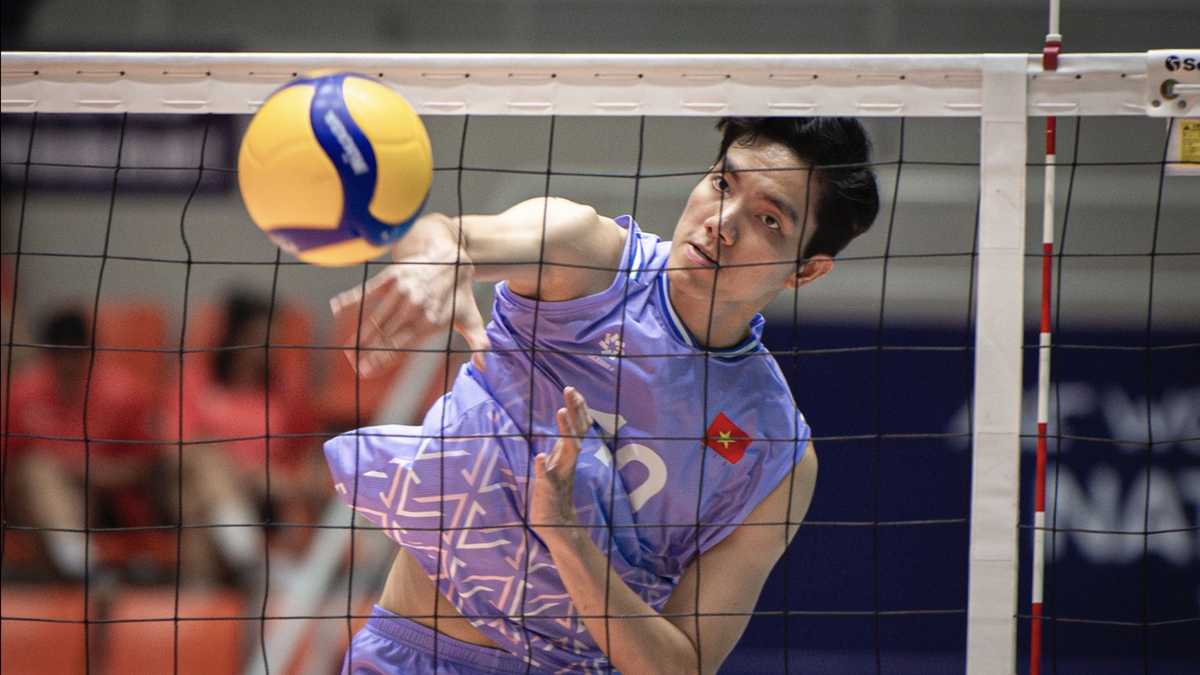

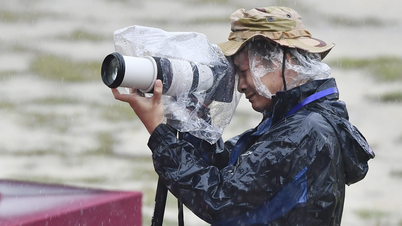


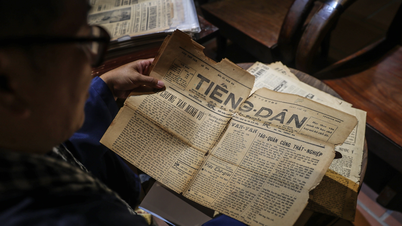
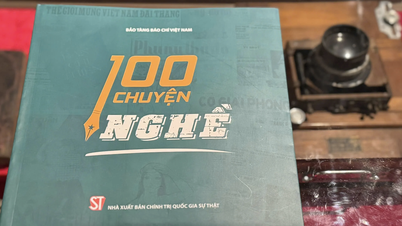
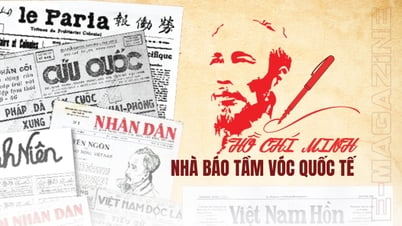




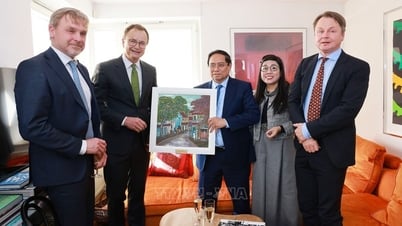

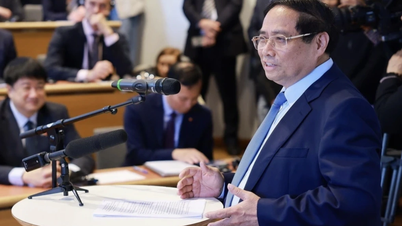

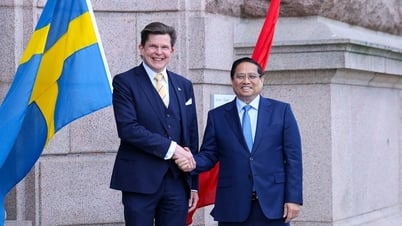
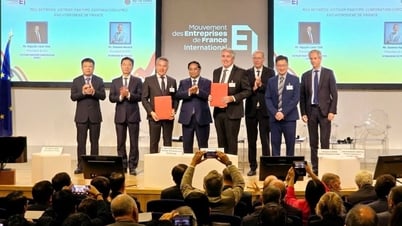

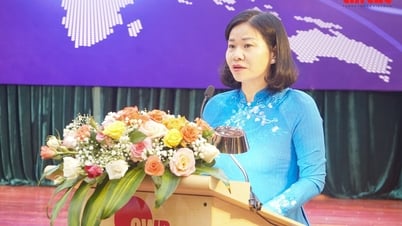






![[Photo] "Cooling off" on summer days at Suoi Tranh, Phu Quoc](https://vphoto.vietnam.vn/thumb/402x226/vietnam/resource/IMAGE/2025/6/14/22b4e51387944665976233d0b8a08b22)
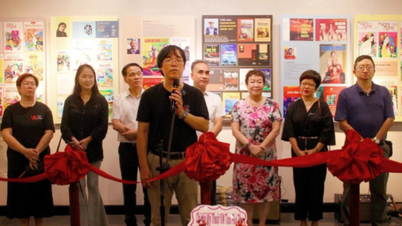

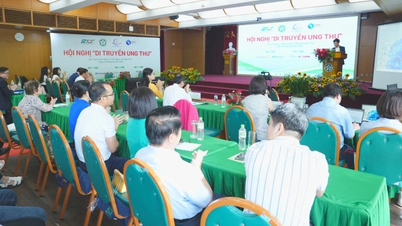







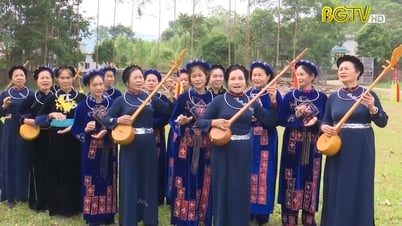









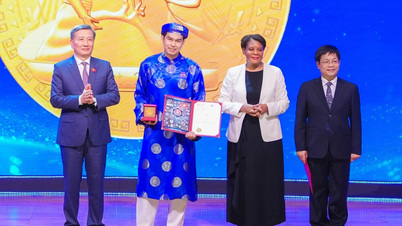










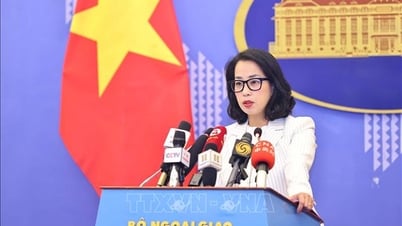

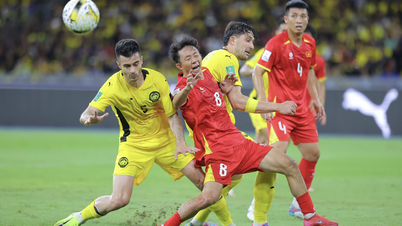







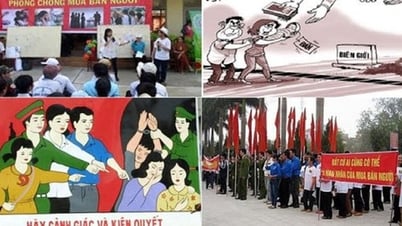
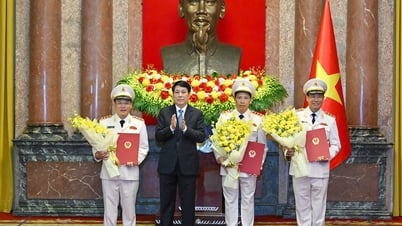

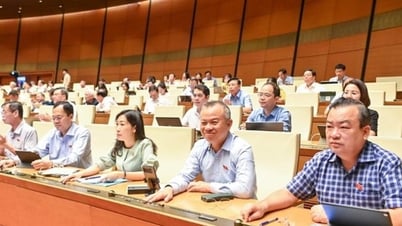

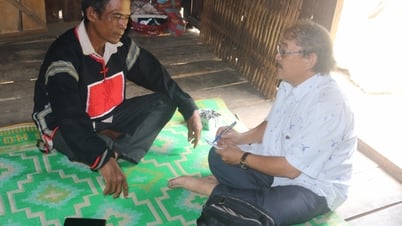

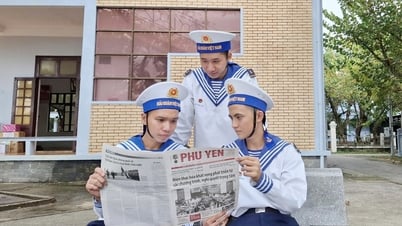


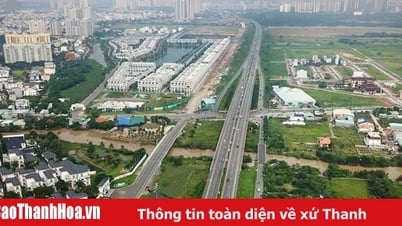















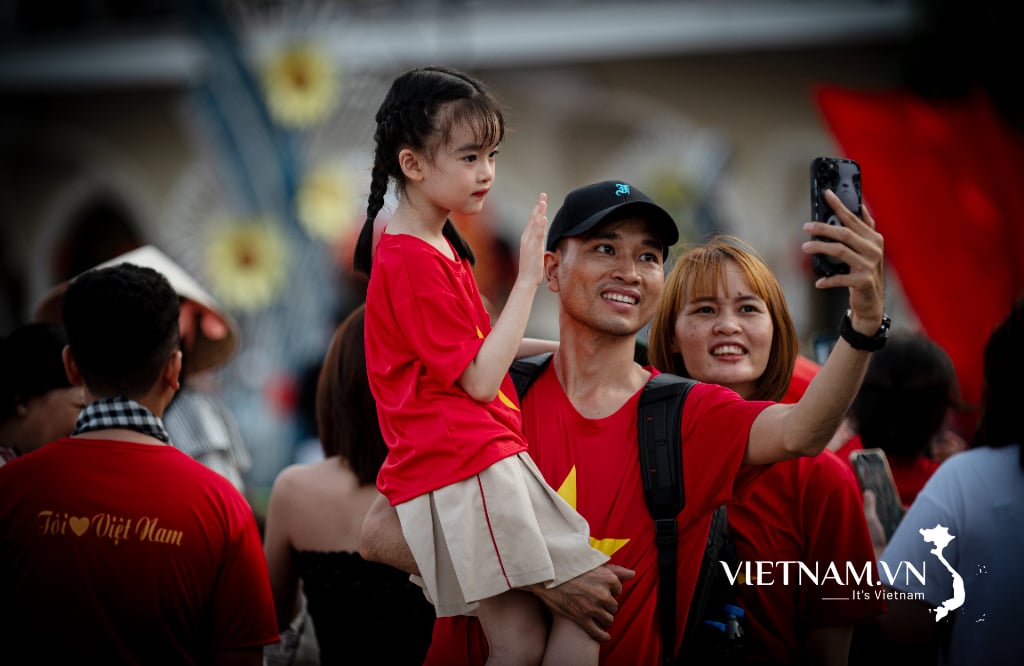
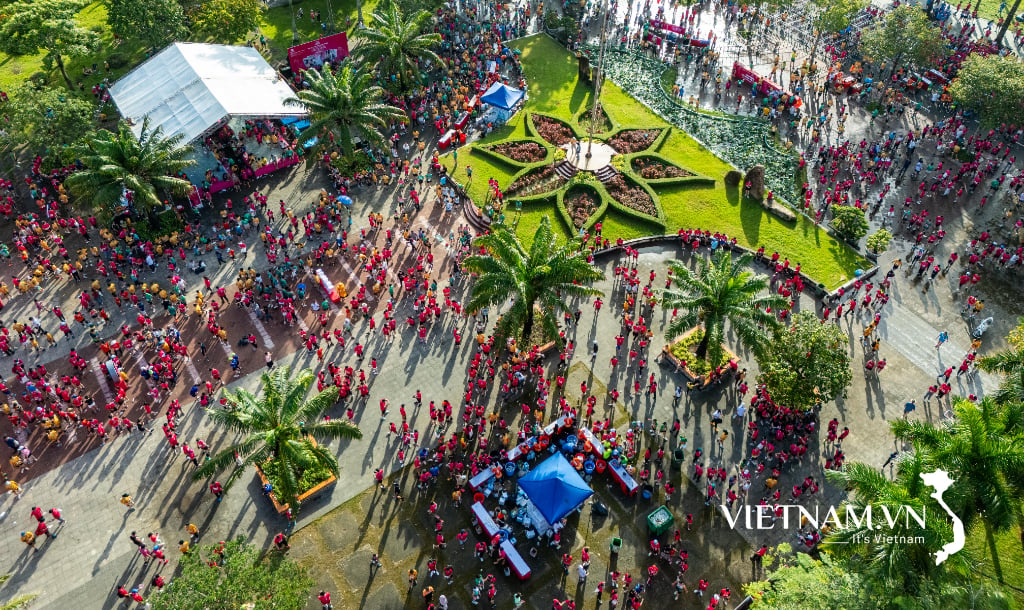
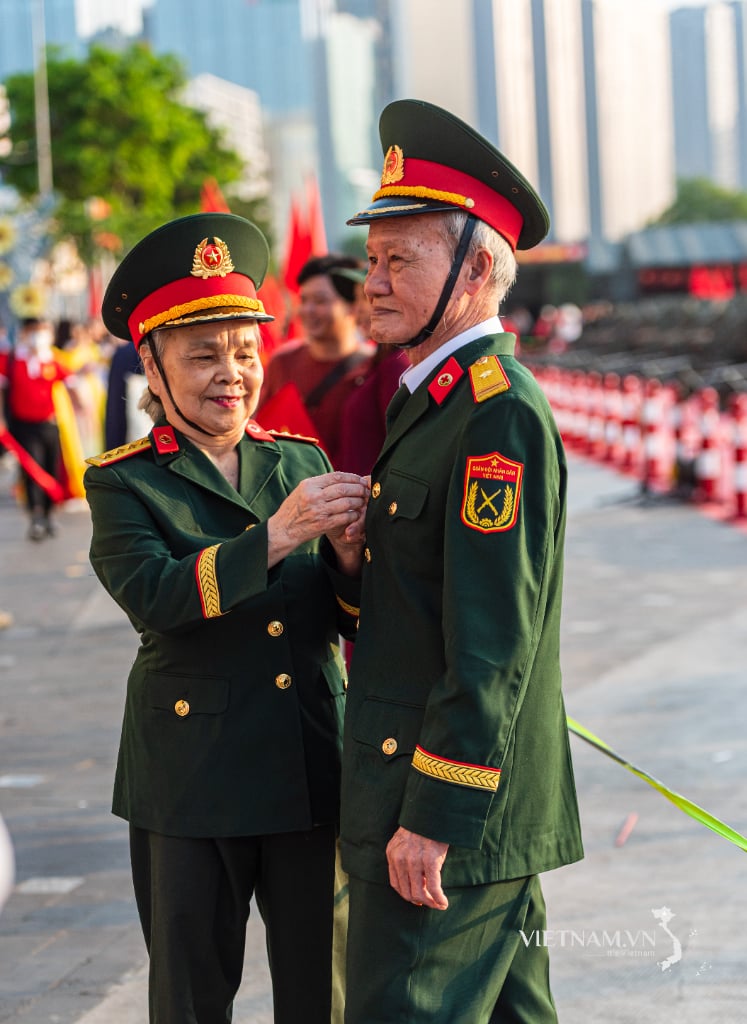

Comment (0)